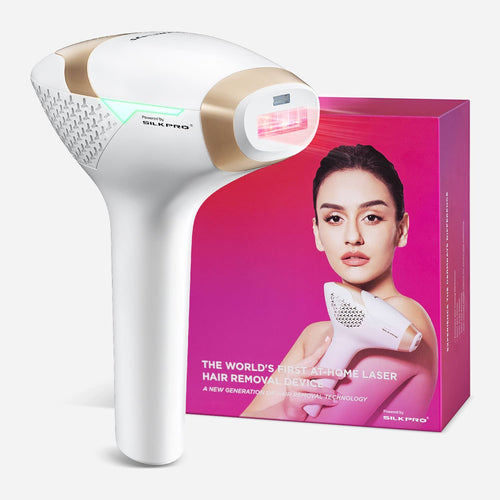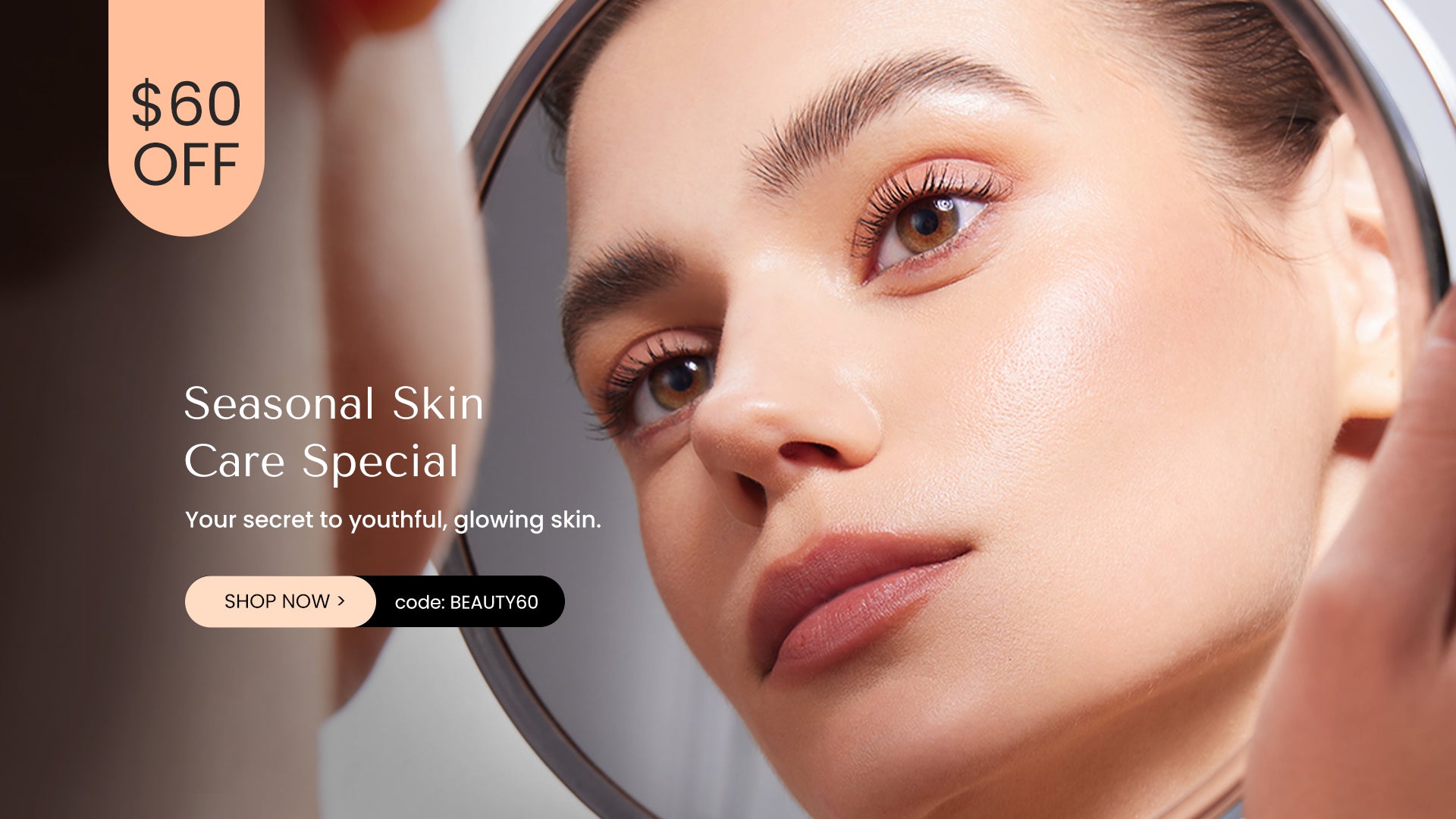Everyone wants their skin to glow, but finding the right daily and night skincare routine can feel like a challenge. With so many products on the shelves, it's tough to know where to start or what works best for your unique skin type.
Dermatologists emphasize that nighttime is prime time for your skin to absorb skincare ingredients efficiently. This fact alone makes establishing an effective nightly ritual as important as any other part of your day.
Our article breaks down easy-to-follow steps for both morning and evening routines tailored just for you, no matter what your skin needs might be. From selecting the right cleansers to applying serums and moisturizers correctly; we've got you covered with tips straight from skincare professionals.
Key Takeaways
1. Cleansing your skin twice a day, in the morning and at night, removes dirt and oil. For better results, try double cleansing at night to get rid of makeup and sunscreen.
2. Applying a moisturizer is key for all skin types to keep skin balanced. During the day, don't forget to protect your skin with sunscreen to prevent ageing and reduce cancer risk.
3. Find out what kind of skin you have - oily, dry, sensitive or combination. This helps choose the right products like cleansers and moisturizers made just for you.
4. Adding serums with antioxidants in the morning can brighten and protect your skin. At night, use products that help repair your skin like retinol or niacinamide.
5. Customize your skincare routine by adding extra treatments based on your needs. Use specific creams or masks for things like acne or dryness to give your skin an extra boost.
The Importance of a Daily Skin Care Routine
A daily skin care routine keeps your skin healthy and glowing. It fights off dirt, oil, and the signs of ageing.
Benefits of having a routine
Having a routine can stabilize your day and improve your mental health. Taking time for skincare each morning or night becomes a moment of self-care that reduces stress. This ritual boosts feelings of self-worth by allowing you to prioritize your well-being.Regular skin care routines lead to clean, clear, and hydrated skin. Over time, these practices keep the skin healthy and can prevent wrinkles. Sticking to a daily regimen enhances the overall quality of your complexion in the long term.
Recommended frequency of routine
A healthy skin care routine should happen twice a day, once in the morning and once at night. Experts recommend moisturizing two times each day to keep your skin hydrated, especially during winter when air is drier.Cleansing both in the morning and before bed removes oil, dirt, and debris. This prevents clogged pores and dullness, keeping your complexion clear.
Determining your skin type will help you customize this routine further. For oily or acne-prone skin, using products with benzoyl peroxide or salicylic acid might be beneficial. Dry or sensitive skin types often do well with gentle cleansers and heavier moisturizers without fragrances.
How to determine your skin type
Finding out your skin type is the first step in creating a fitting skincare regimen. You can easily do this at home by washing your face with a gentle cleanser and then waiting for an hour.If your skin feels tight, it's likely dry. An oily sheen suggests oily skin. Combination skin shows oiliness in the T-zone (forehead, nose, chin) and normal to dry elsewhere. Sensitive skin may react with redness or itching to new products.
For more precision, try using blotting paper on different areas of your face. This method helps identify where sebum production is highest, further clarifying whether you have oily, combination, or other types of skin.
Knowing this allows you to select the right products that will work best for you-ranging from moisturizers and sunscreens designed specifically for oily or dry conditions to exfoliators that suit sensitive skins without causing irritation.
Daytime Skin Care Routine
Your daytime skin care routine sets the tone for healthy, glowing skin all day long. Starting with the right steps protects your skin from pollutants and harmful UV rays, ensuring it looks its best.
Cleansing
Cleansing plays a crucial role in any skin care routine. It clears away impurities and excess oil that can lead to clogged pores and dull-looking skin. It also prevents acne breakouts by making sure no residue of the products applied at night is left behind.
Toning
Toning is key to balancing your skin's pH after you cleanse and it prepares your skin to absorb additional treatments more effectively.
Toners come packed with ingredients that either hydrate or help get rid of impurities. Whether your skin is dry, oily, or a combination, incorporating toning into your routine can make a significant difference.
Serum and antioxidants
After toning, applying a serum enriched with antioxidants is the next crucial step. These serums contain powerful ingredients that brighten, hydrate, and protect your skin throughout the day.Antioxidants are key because they fight off damage from harmful UV rays and pollution. They also stimulate elastin and collagen production, leading to firmer and more youthful-looking skin.
Using an antioxidant serum every morning can greatly improve your skin's tone and texture by reducing uneven pigmentation. Plus, these serums provide essential hydration to help tackle dryness without making your skin oily.
For those concerned about ageing or environmental damage, incorporating this step into your routine is a game-changer for keeping your skin vibrant and healthy.
Spot treatment
By targeting specific areas, individuals can effectively address concerns such as acne, blackheads, and hyperpigmentation with precision.Each spot treatment is unique and can be personalized to tackle different skin issues. Whether dealing with severe acne or looking to minimize the appearance of dark spots, choosing the right product makes a significant difference.
Incorporating spot treatments into morning and evening rituals enhances overall skincare by focusing on problem areas directly.
Moisturizing and sunscreen
After addressing specific issues with spot treatment, it's time to hydrate your skin and shield it from the sun. Moisturizing locks in all the benefits of the products you've applied beforehand.
It keeps your skin hydrated throughout the day. For all skin types, using a moisturizer is crucial, as it helps to maintain balance. Dry skin can get needed moisture while oily skin types can find formulas that control excess oil.
Sunscreen is a must-have in any morning routine to protect against UVA and UVB rays-skin's worst enemies. Experts agree: sunscreen isn't just another step; it's the most important one! Applying SPF as the last part of your skincare guards against premature ageing and reduces the risk of skin cancer.
Choose a broad-spectrum sunscreen with an adequate SPF level for comprehensive coverage every day.

Nighttime Skin Care Routine
Your nighttime skin care routine works hard while you sleep, helping to repair and rejuvenate your skin. This process involves a series of steps that remove the day's grime and treat your skin with nurturing ingredients.
Makeup removal
Makeup removal is a crucial first step in the nighttime skin care routine. Using gentle cleansing wipes can remove makeup faster and more efficiently. This method clears away not just makeup but also dirt particles and impurities from the skin's surface.
Reducing these elements on the face lessens the risk of developing skin issues.
Next, applying a quality makeup remover ensures that formulas, impurities, and dirt are wiped off thoroughly. Dermatologists often recommend double-cleansing at night to effectively cleanse skin of makeup and SPF.
Starting with makeup wipes before bed followed by cleansing keeps your complexion clear and ready for restorative overnight treatments.
Double cleansing
Double cleansing starts with an oil-based cleanser. This step removes makeup, sunscreen, and sebum from your skin. Next, use a water-soluble cleanser to clean away dirt and pollution. The process leaves your skin truly clean.
Exfoliation and mask
Exfoliating your skin 1-3 times a week is crucial for removing dead cells. This process helps in unclogging pores and allowing skincare products to penetrate deeper, enhancing their effectiveness.Choose an exfoliating cleanser that suits your skin type to avoid irritation. After exfoliation, applying a mask provides the perfect opportunity for your skin to soak up essential nutrients and hydration.
It's best done at night as part of your routine, helping you relax while giving your skin much-needed care.
For masks, there are various options including clay for oil control or hydrating ones rich in humectants for dry skin. Masks tailored to acne treatment may contain ingredients like salicylic acid to combat breakouts effectively.
Incorporating these steps into your nighttime regimen not only pampers the skin but also prepares it for better absorption of serums and moisturizers applied afterward. Always select products based on what works best for your unique skincare needs – be it reducing signs of ageing or managing rosacea.
Serums and acids
Serums and acids are key for a nighttime skin care routine. They help draw moisture into the skin, making it look plump and lively.Products like hyaluronic acid serums and niacinamide work deep to combat dryness and dullness while targeting specific concerns such as wrinkles or dark spots.
They are usually applied after cleansing but before moisturizing to ensure your skin absorbs their benefits fully.
For those with dry skin, choosing serums with ingredients like vitamin E, peptides, or ceramides can be particularly beneficial. Not only do they hydrate, but they also strengthen the skin's barrier against environmental stressors.
While not mandatory, adding these products can give your routine an extra boost of hydration and protection. Now let's discuss eye cream and moisturizer applications in the next step of your skincare regimen.
Eye cream and moisturizer
Applying eye cream is a key step in your nighttime skincare routine. Eye creams are specially made to moisturize the delicate skin around your eyes. Dermatologists say that for most people, using an eye cream at night does wonders. It helps keep the skin hydrated and can reduce the appearance of fine lines.After applying eye cream, it's important to use a moisturizer. Nighttime moisturizers often contain ingredients like retinol and niacinamide. These help deeply hydrate your skin while you sleep.
The order matters too-put on eye cream before your moisturizer to get the best results from both products.
Conclusion
In summary, maintaining a consistent skincare routine tailored to your unique needs is crucial for healthy, youthful skin. It's important to incorporate products that shield during the day and repair at night, aligning with the body's natural processes. Starting with basic cleansing and moisturization, then gradually adding specialized treatments, can enhance your skin's health. However, recognize the limits of home care and seek professional treatments when necessary. Dedication to your skincare regime is a fundamental step towards sustained skin vitality.












Dejar un comentario
Todos los comentarios se revisan antes de su publicación.
Este sitio está protegido por hCaptcha y se aplican la Política de privacidad de hCaptcha y los Términos del servicio.